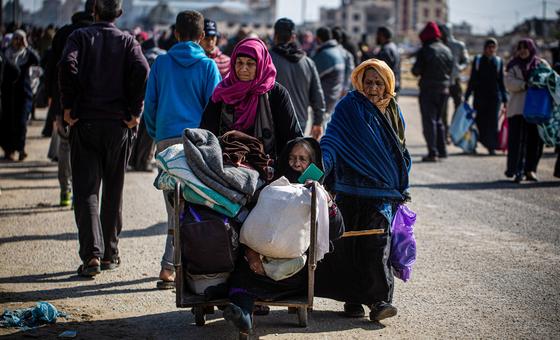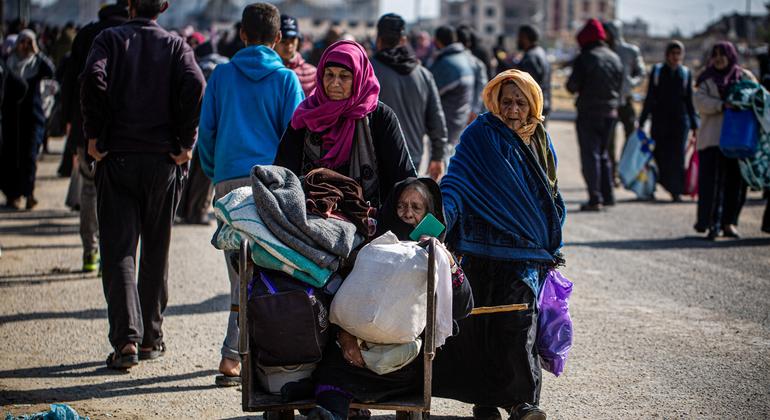
According to UN Women, more than nine in 10 women interviewed in the southernmost governorate reported feelings of indescribable fear; while over half said they had medical conditions needing urgent attention.
“Women and girls in Rafah, as in the rest of Gaza, are in a state of constant despair and fear already,” the UN agency said in a statement late Monday, adding that an Israeli ground invasion would have cause further suffering among Rafah’s 700,000 women and girls who have “nowhere to go to escape the bombing and killing”.
Thousands orphaned
Seven months since Israeli strikes began in response to Hamas-led terror attacks, more than 10,000 women have been reportedly killed in Gaza, among them 6,000 mothers. Some 19,000 children have been orphaned, UN Women said.
The UN agency’s survey of 360 respondents including 182 women in Rafah revealed disturbing data that more than six in 10 pregnant women reported complications, including 95 per cent with urinary tract infections and 80 per cent with anaemia.
In households with nursing mothers, 72 per cent reported challenges in breastfeeding and in meeting the nutritional needs of their babies.
“A ground invasion would be an unbearable escalation that risks killing thousands more civilians and forcing hundreds of thousands to flee again,” said Sima Bahous, UN Women Executive Director. “We must protect civilians. We need an immediate ceasefire and unimpeded and safe humanitarian aid distribution across all Gaza. The need for peace has never been more urgent. This is our only hope”,
UN Women calls for the implementation of the United Nations Security Council resolution 2728 (2024) adopted on 25 March 2024 which demands an immediate ceasefire, the release of all hostages, and safe and unimpeded access for humanitarian aid.
Compounding pressures
The UN agency data indicated that mothers also reported struggling to protect their children, both physically and mentally, while living in tents and overcrowded households.
According to eight in 10 of the survey’s female and male respondents, mothers now take on more responsibility than men to provide emotional support for adult family members and children alike.



